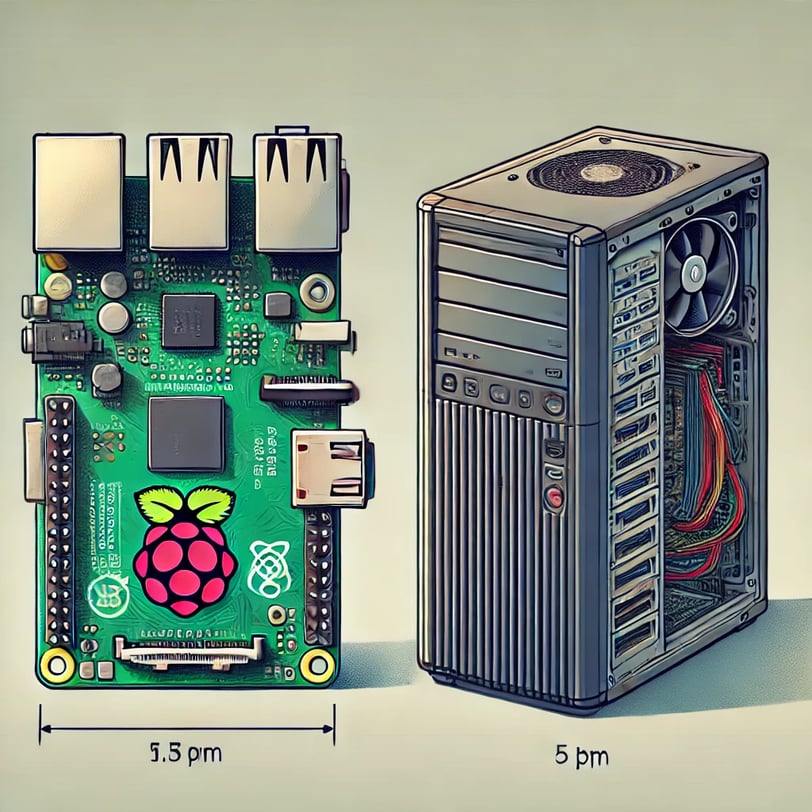Should You Buy a Raspberry Pi If You Already Have a PC?


Should You Buy a Raspberry Pi If You Already Have a PC?
The Raspberry Pi has gained immense popularity as an affordable, versatile single-board computer that can be used for various projects. However, if you already own a capable PC, you might wonder whether investing in a Raspberry Pi is worthwhile. In this article, we’ll compare the use cases of a Raspberry Pi and a traditional PC to help you decide whether adding a Raspberry Pi to your setup is a good idea.
Understanding the Raspberry Pi
A Raspberry Pi is a credit-card-sized computer that runs on ARM-based processors and is designed to be cost-effective and energy-efficient. While it lacks the raw power of a traditional PC, it excels in specific applications such as DIY electronics, home automation, IoT projects, and education. The most recent versions, like the Raspberry Pi 5, offer improved processing power and connectivity, making them even more capable.
Key Differences Between a PC and a Raspberry Pi
When You Should Buy a Raspberry Pi
If you already own a PC but are still considering whether a Raspberry Pi is worth it, here are some scenarios where it makes sense:
1. Learning Linux and Command-Line Skills
A Raspberry Pi is an excellent way to get hands-on experience with Linux. While you can install Linux on a PC, a Raspberry Pi provides a low-risk environment to experiment without affecting your main system.
2. IoT and Hardware-Based Projects
Unlike a PC, a Raspberry Pi has GPIO (General Purpose Input/Output) pins that allow you to connect sensors, LEDs, motors, and other hardware. If you're interested in robotics, home automation, or IoT projects, a Raspberry Pi is a must-have.
3. Running a Low-Power Server
A Raspberry Pi can be used as a:
Media Server (Plex, Kodi, Jellyfin)
Web Server (Apache, Nginx)
VPN Server
Cloud Storage (Nextcloud, Samba NAS)
Since it consumes very little power compared to a full PC, it’s ideal for always-on applications.
4. Setting Up a Retro Gaming Console
With software like RetroPie, a Raspberry Pi can emulate classic game consoles (NES, SNES, PlayStation, etc.), turning it into an affordable retro gaming machine.
5. Experimenting with Programming and Networking
A Raspberry Pi is a great platform to learn coding (Python, C, JavaScript) and networking concepts. You can set up a firewall, network monitor, or even a penetration testing environment.
6. Dedicated Lightweight Workstation
If you want a separate system for web browsing, document editing, or simple coding tasks, a Raspberry Pi can serve as a low-cost alternative to a second PC.
When You Don’t Need a Raspberry Pi
While a Raspberry Pi is versatile, there are cases where it may not be necessary:
If your primary need is gaming, video editing, or high-performance computing, a PC is the better choice.
If you only need Linux for software development, you can use a virtual machine or dual-boot your PC instead.
If you have no interest in DIY projects or server setups, then a Raspberry Pi won’t add much value to your workflow.
Final Verdict: Is a Raspberry Pi Worth It?
A Raspberry Pi is not meant to replace a PC but rather complement it. If you’re interested in hands-on projects, lightweight computing, or learning Linux, it’s a fantastic investment. However, if your primary needs revolve around high-performance computing, a Raspberry Pi won’t be a substitute for a traditional PC.
If any of the use cases mentioned above interest you, then buying a Raspberry Pi can be a valuable addition to your tech setup. Otherwise, sticking with your PC may be the better option.
Insight
Explore tech and finance for future success.
© 2025. All rights reserved.
